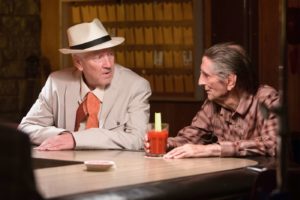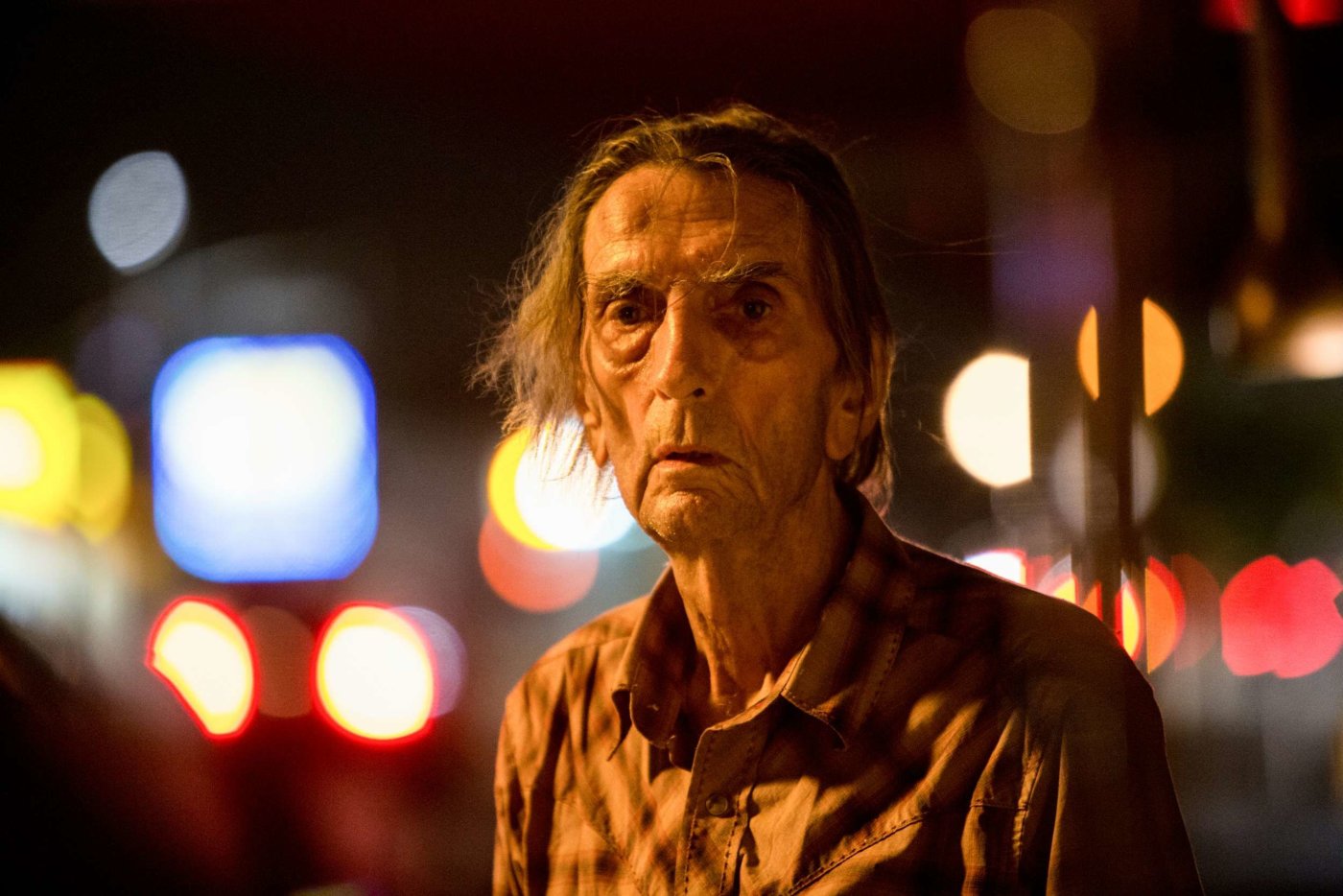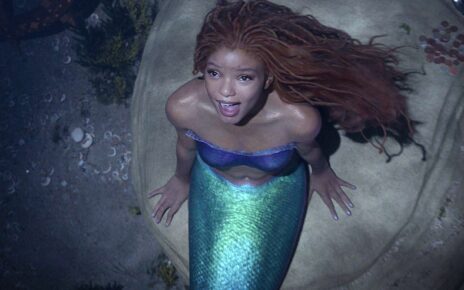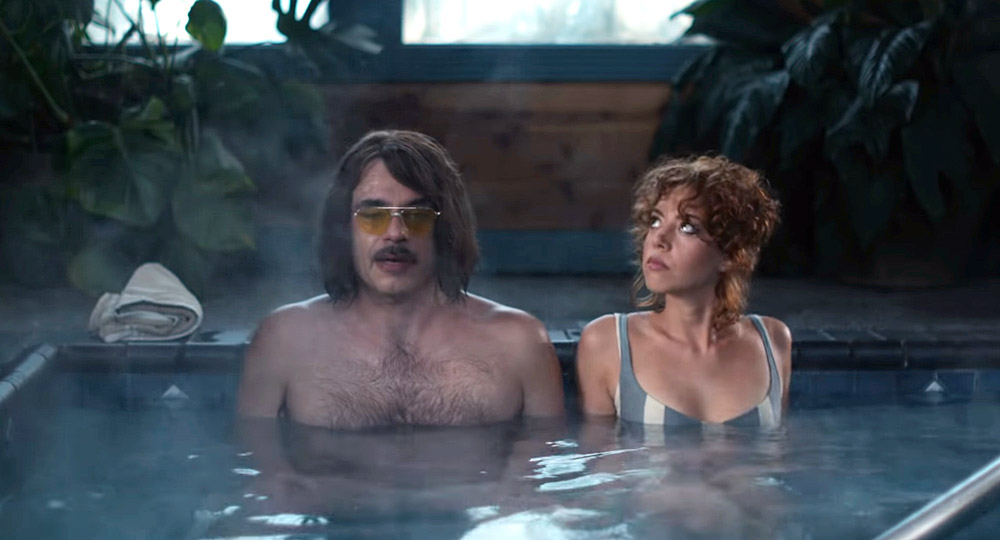Do film productions get life insurance? Some must, right? There was a solid chance that Harry Dean Stanton would die during the filming of Lucky. Oh, don’t give me that; the film is entirely about facing the void. They knew it. He knew it. Death is the theme in Lucky. I first saw the trailer before The Hero starring Sam Elliott and Harry Dean Stanton in Lucky makes Sam Elliott look like Zac Efron. In Lucky, Harry Dean Stanton looks like somebody took a skeleton, draped some skin on it, and taught it how to order a Bloody Mary. You’d better believe there was life insurance on this film — or at least Christopher Plummer behind an enclosure reading, “in case of emergency, break glass.” Stanton used his personal date with oblivion as motivation, and he’s never been better.
Were he in a city with more than a few hundred souls, Lucky (Stanton) would probably be in a retirement home. He’s a couple standard deviations beyond natural death. He’s past bucket list age. He’s down to one what appears to be an all-liquid diet: milk (the sole contents of his refrigerator) in the morning, coffee at lunch, Bloody Marys for dinner. In WWII, he was in the navy, now, he is the ancient mariner, living alone in a shack below a mountain so small they didn’t bother naming it. He never had a family to regret losing, never a son or daughter who fails to call, nor legacy of grandchildren. And he knows damn well his days a numbered.
Lucky’s life is about routine – exercises, walking, crossword puzzle, game shows. That kinda spooked me; forty, fifty years from now and that could be my life. When somebody is named “Lucky,” I think we naturally assume “good luck,” but I have no idea why that is our fallback assumption. I wouldn’t say there is anything necessarily “good lucky” about Lucky. Yet, he isn’t necessarily bitter nor irascible. He’s just a guy burdened with long life and nobody to share it with. Is that a burden, or isn’t it?
Lucky calls somebody every day, we don’t know whom. The first call in the film is about a crossword puzzle answer: “realism – is that a thing?” The other end of the phone makes no sound, but satisfied with the response, Lucky goes to his library-like master dictionary to look up “realism,” carrying around a definition for a day’s worth of conversation. Whom does Lucky call? Encyclopedia Britannica? God? Ghostbusters? The quasi-surreal phone-a-friend directly contrasts the realism replete in screen, screenplay and atmosphere. We get the feeling Lucky is a very real man literally in touch with his inevitable future.
So Harry wouldn’t feel alone in the film, the casting director surrounded him with some colorful relics – Tom Skerritt as a fellow vet, Ed Begley Jr. as his doctor, and David Lynch as an oddball needing to come to grips with a runaway pet tortoise. Lucky is a difficult film to peg; it’s a slice-of-life film, which tend to be light-hearted and satisfying in small town context, but it turns on a dime when Lynch describes what it is to be a tortoise. To paraphrase: the body of a tortoise is protected, but he carries around his armor throughout his long life, which eventually becomes his coffin. This is the message of Lucky – one way or another, we carry around our coffins throughout our lives; they’re easier to spot on someone like Lucky. For the reptile, it is an awesome burden (one of many if you consider all the ninja stuff), but we humans rarely  see or pay attention to our own shells, our own coffins.
see or pay attention to our own shells, our own coffins.
This is a film where characters either talk openly about death or talk about it through metaphors. This is Lucky’s remaining life —death is coming; fight it or don’t. Surreal touches around the town suggest afterlife even though Lucky himself describes it as a void. You would guess from all that Lucky is a depressing film, but this material isn’t depressing; it is simply a calm answer to a question most every human will ask during their lifetime, “How do I deal with death?”
Now, what is the record for oldest lead actor in a film? How about oldest titular actor? I have no idea what the records are. And though I have seen Harry Dean Stanton many times, I cannot remember the last film where he was the lead. Quite frankly, one couldn’t ask for a better swan song. The film respectful, yet allowed HDS to be ornery, aloof, wise, and ultimately endearing; we should all get a last film like Lucky.
A southwestern coot with street cred
Has seen everything from A to Zed
Resigned to his hovel
Finds no need to grovel
It’s better to be Lucky than dead
Not Rated, 88 Minutes
Director: John Carroll Lynch
Writer: Logan Sparks, Drago Sumonja
Genre: Adios, muchachos
Type of being most likely to enjoy this film: Those facing the void
Type of being least likely to enjoy this film: The impatient
RIP, Harry Dean Stanton



